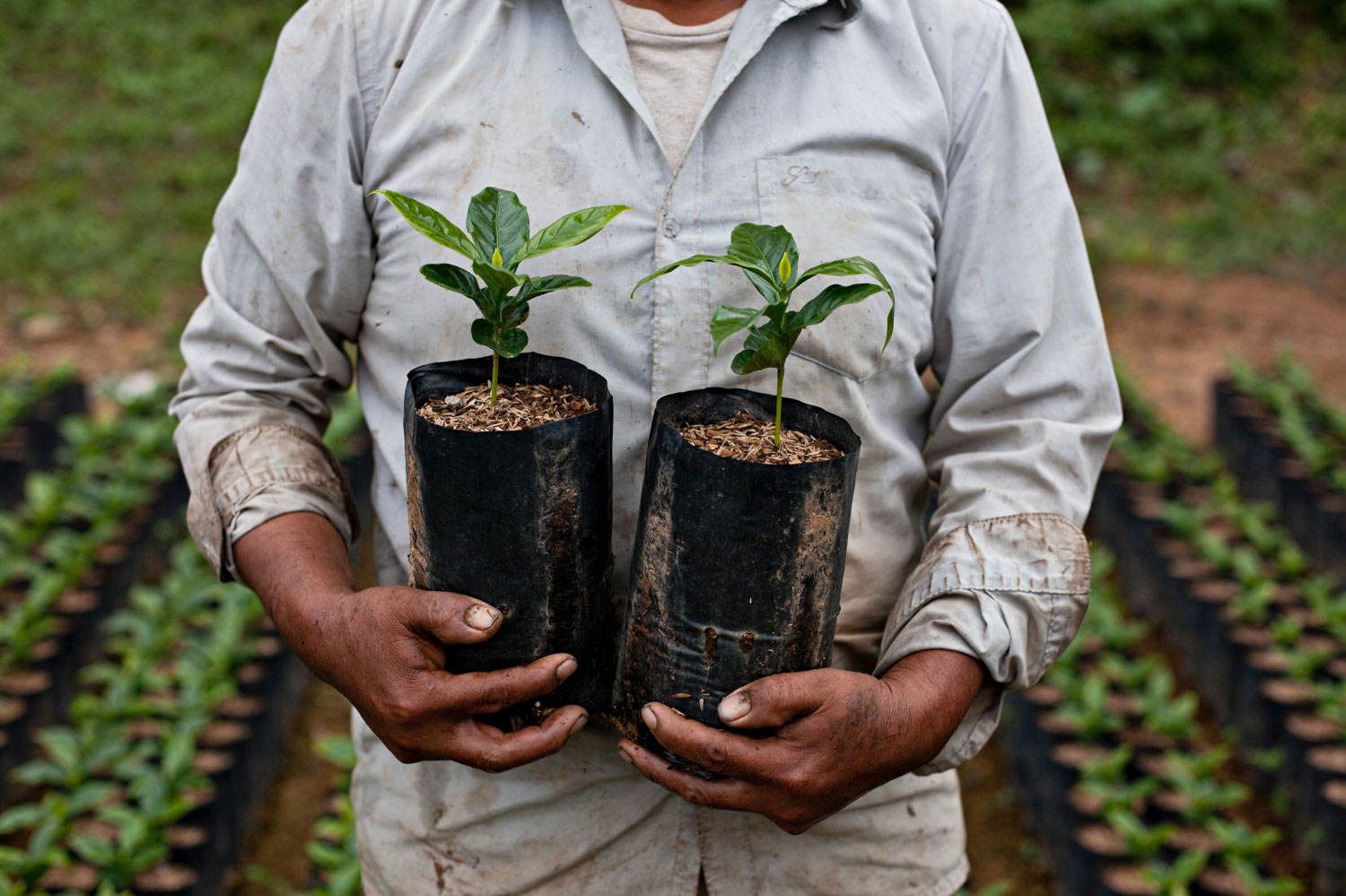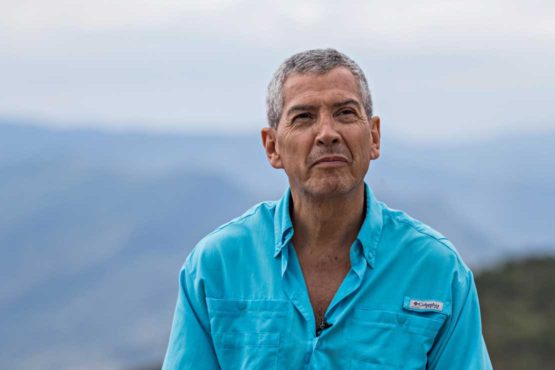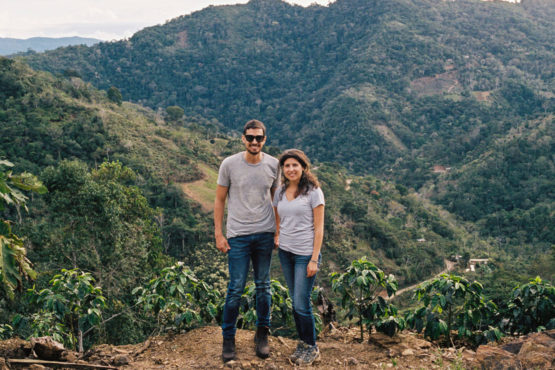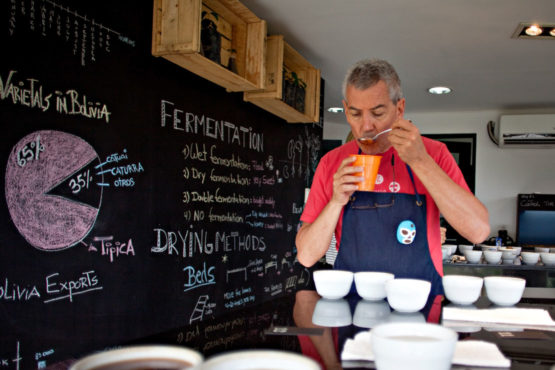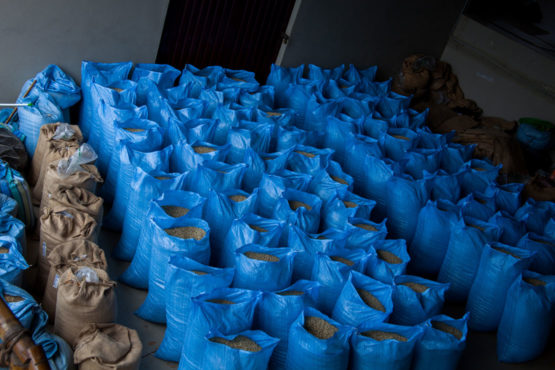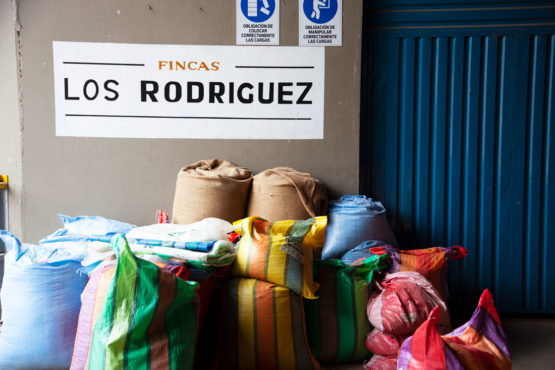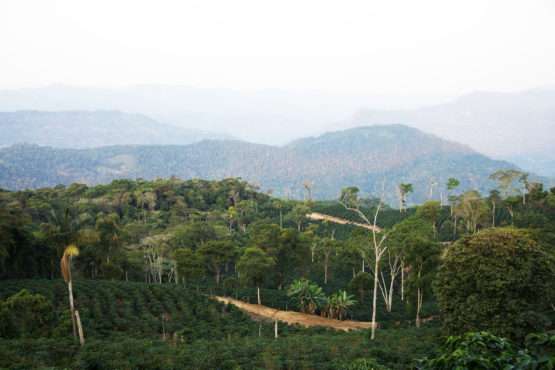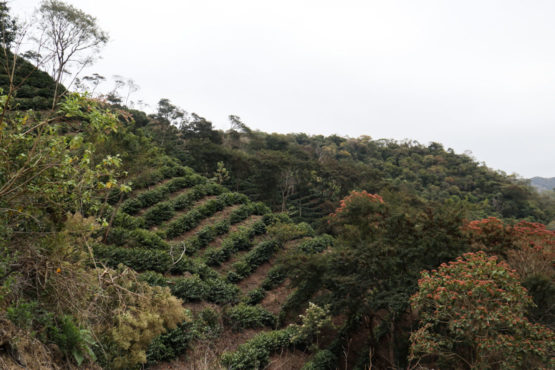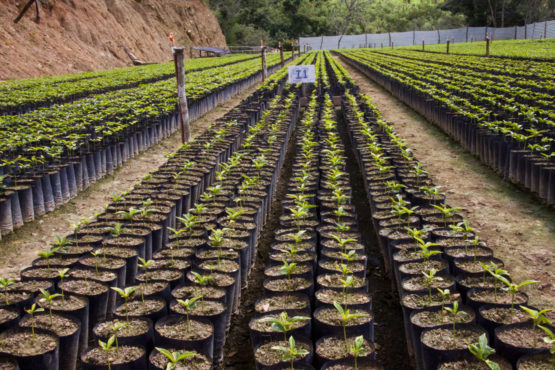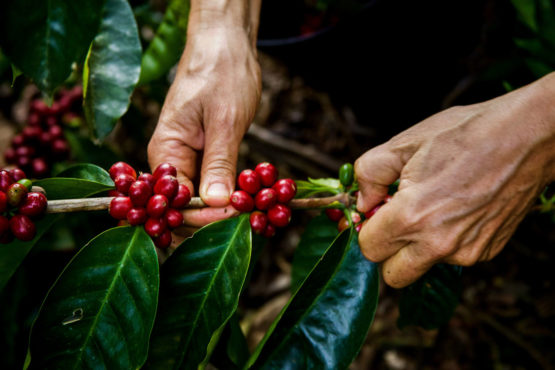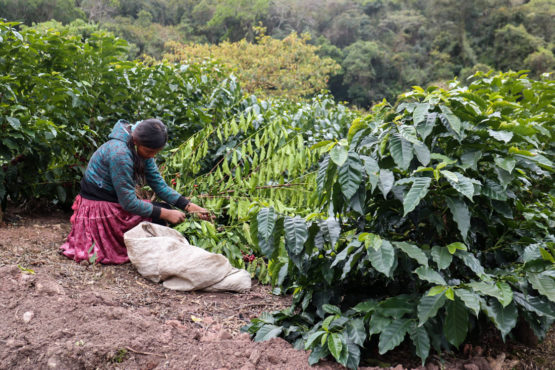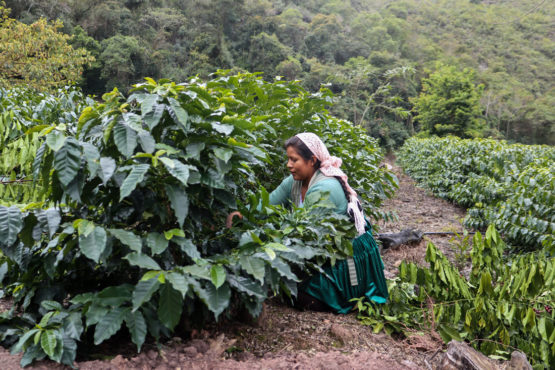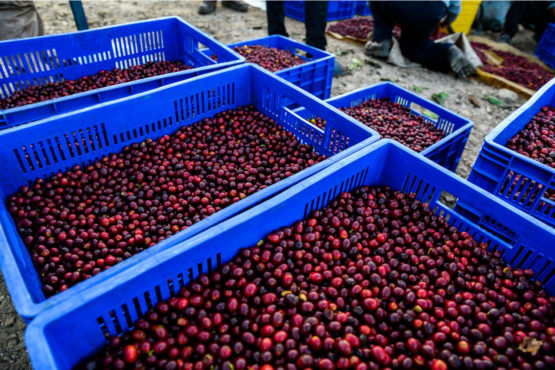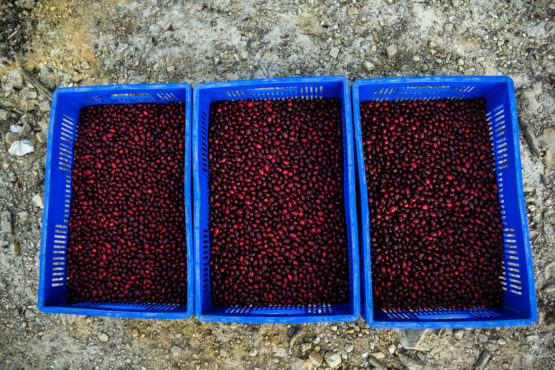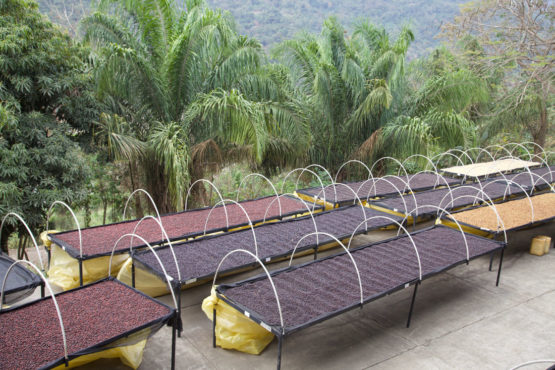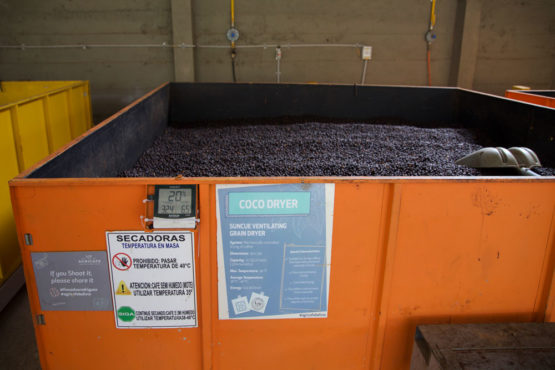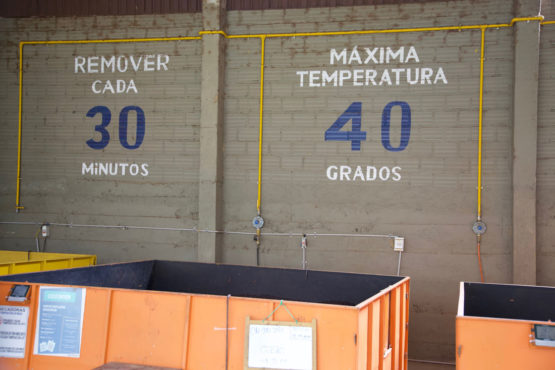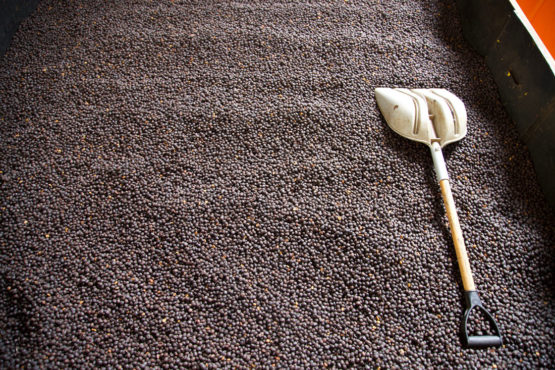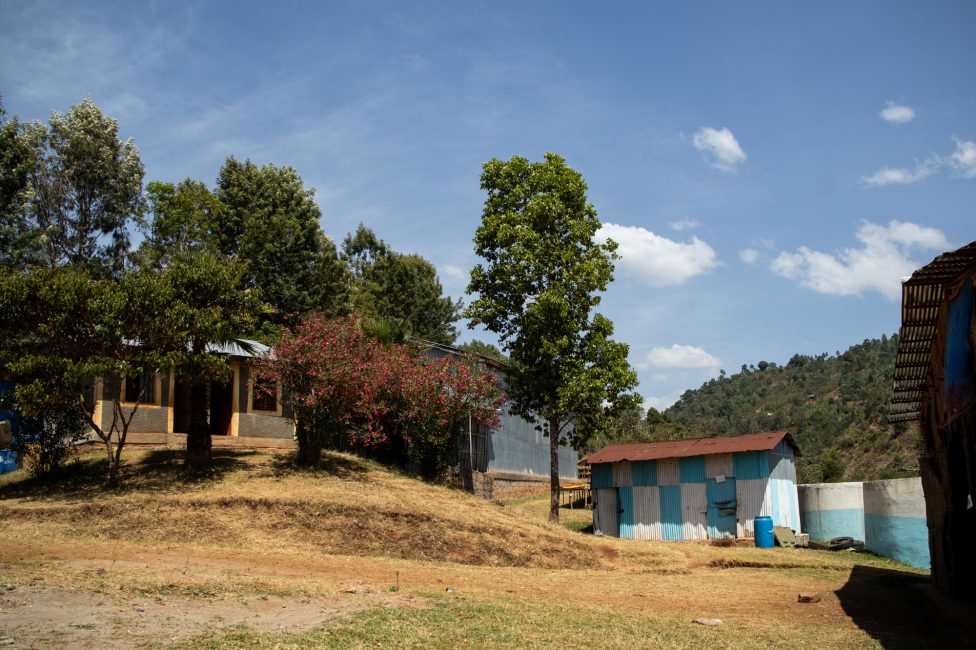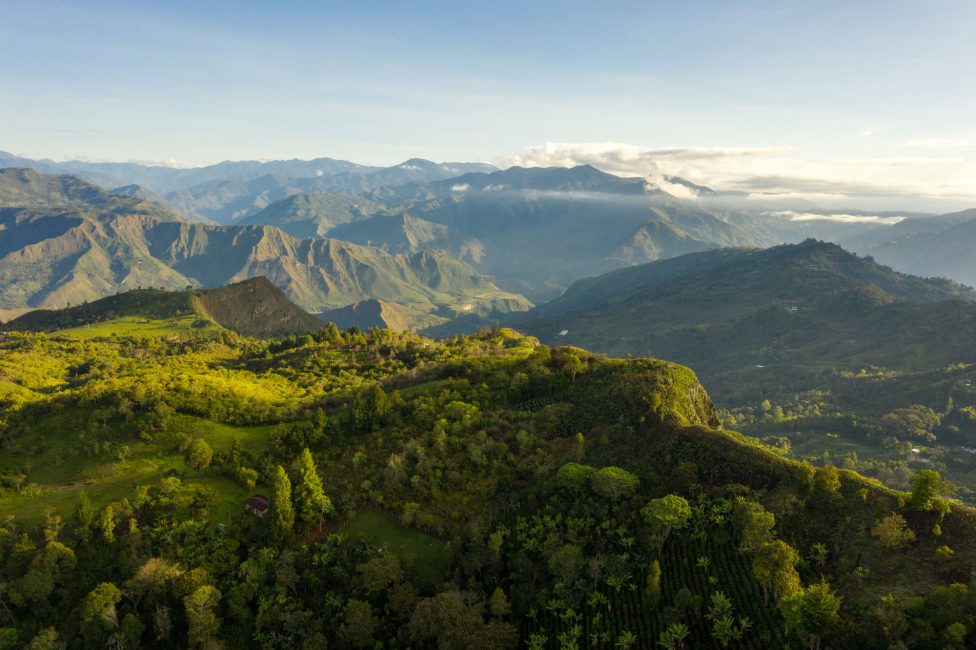Floripondio Java Coco Natural
Sparkling and complex, with honey aroma and fruit-forward notes of peach, kumquat, guava, and plum. Syrupy body.
Floripondio is located in a new growing region in Bolivia called Samaipata, which is located in the easterly department of Santa Cruz, at the foot of the Bolivian Andes.
The farm is owned by the Rodriguez family, is owned by the Rodriguez family. The Rodriguez’ has a business called Agricafe, that produces coffee from its own farms, and sources quality micro-lots from small producers in the Yungas region.
Coffee production in Bolivia is, and always has been, very small. Pedro began his journey in coffee by working with small producers in Caranavi, building a wet mill to process their coffee, and educating producers to selectively handpick their cherries. He also started to process small micro-lots from each of the producers, and because of the unique combination of heirloom varieties, rich soil and incredibly high altitudes, the results were outstanding.
However, despite increased international recognition for its quality, coffee production in Bolivia began to rapidly decline over a very short period of time for many reasons. Some farmers switched to coca – grown for the drug trade and illegal to produce in Caranavi – because it provided them with a high year-round income. For those still in coffee, their yields were also declining as a result of ageing coffee plantations, unsophisticated farming techniques, and leaf rust. The combination of these factors resulted in the nation’s coffee production decline by more than half.
In 2012, as leaf rust started to obliterate the production in many small farms, Pedro and his family began to invest in their own plantations, fearing that coffee production in Bolivia would disappear completely. This, they recognised was critical to guarantee a minimum level of supply and thus ensure the future sustainability of their business. They acquired land in Caranavi near their Buena Vista mill and created their first farm, Finca La Linda. “This is where the dream started,” Pedro says.
Today Agricafe has 12 farms and around 130 hectares of coffee under the banner of ‘Fincas Los Rodriguez’. Seven of these are in Caranavi, in the department of La Paz, and the remaining five are in Samaipata (where Floripondio is located), in the department of Santa Cruz in Bolivia’s east.
The Rodriguez family’s approach to coffee production has been extremely methodical, innovative and scientific. Along the way, they consulted leading specialty coffee agronomists from around the world to help them produce exceptional coffee and build sustainable and healthy farms. A wide range of varieties have been trialed, along with different farming techniques, to optimise quality and output. They have carefully documented their findings at every step of the way and continue to innovate and invest in improvements to produce the very best quality coffee they can.
The Rodriguez farms are some of the most organised and beautiful we have come across. Coffee is well spaced in neat rows and meticulously planted by variety, making picking and lot separation much easier to manage than on more traditional farms in the region. The farms are vibrant, luscious and healthy, and produce exceptional quality and yields.
ABOUT FLORIPONDIO
Floripondio is one of the more recent farms planted in Samaipata, where the Rodriguez family has been experimenting with growing specialty coffee. Historically, this region has not been known for producing coffee, but after success in growing exceptional coffee at their first farm in the region – El Fuerte – the Rodriguez family have continued investing more heavily in the region, planting four more farms, including Floripondio, and building a wet mill to process the coffee.
Floripondio was established in 2014. The farm is 47 hectares in size, 29 of which are planted with coffee. The farm sits at a staggering 1,710 meters above sea level. This high altitude, along with daily temperatures ranging widely from 5-30 ˚C, helps to ensure a very slow maturation of the coffee cherries on the farm. The slow maturation leads to an increased concentration of sugars in the cherry and bean, which in turn helps to produce an incredibly sweet and complex coffee.
Because of Floripondio’s high altitude, its tropical microclimate, and its distinct soil profile, the Rodriguez family has chosen to locate their variety nursery at the farm. To date, they have planted over 50 varieties and their objective is to work out which are best suited to the land and this particular latitude and altitude.
Floripondio gets its name from the Floripondio flowers (commonly known as Angel’s Trumpet in English) that are native to the area and grow throughout the farm. The flower is thought to possess some hallucinogenic properties, and legend has it that as soon as you lay down beneath a Floripondio tree you start dreaming. This is apt, as the natural scenery at Floripondio is breathtakingly beautiful and can at times, seem like something out of a dream.
HOW THIS COFFEE WAS PROCESSED
Pickers from the Samaipata community carefully handpick the coffee at Floripondio every day during the harvest. These pickers have been trained to select only the very ripest cherries and pass through the farm every day to ensure the coffee is only picked at its prime. Selective picking is always very important – and particularly important for naturally processed lots like this one to ensure a very sweet and clean cup, and the Rodriguez family have found that the very ripest (almost purple) cherries provide the best cup.
After being picked and weighed this coffee was carefully washed and laid out to dry on raised African beds and turned every hour. After about one week on the raised bed, the coffee was placed in a “Coco Dryer”. We have not seen coco dryers used in coffee before, however, Pedro is always innovating and trialing different processing techniques, and found that these driers help to dry the coffee slowly and consistently. The coffee sits in the large steel vats for around 35 hours at temperatures no higher than 40˚C and is turned every 30 minutes.
Once the coffee was dry, it was transported to La Paz where it was rested, and then milled at Agricafe’s dry mill, La Luna. At this state-of-the-art mill, coffee is meticulously hulled and sorted using machinery, and is also sorted carefully by hand under UV and natural light. The mill is one of the cleanest and most impressive we have seen – you can read more about it here.
WANT TO KNOW MORE?
You can watch an interview with Pedro Rodriguez, the owner of Agricafe, here and about Agricafe’s small producer training program, Sol de la Mañana, here, and about Bolivian coffee more generally here.
